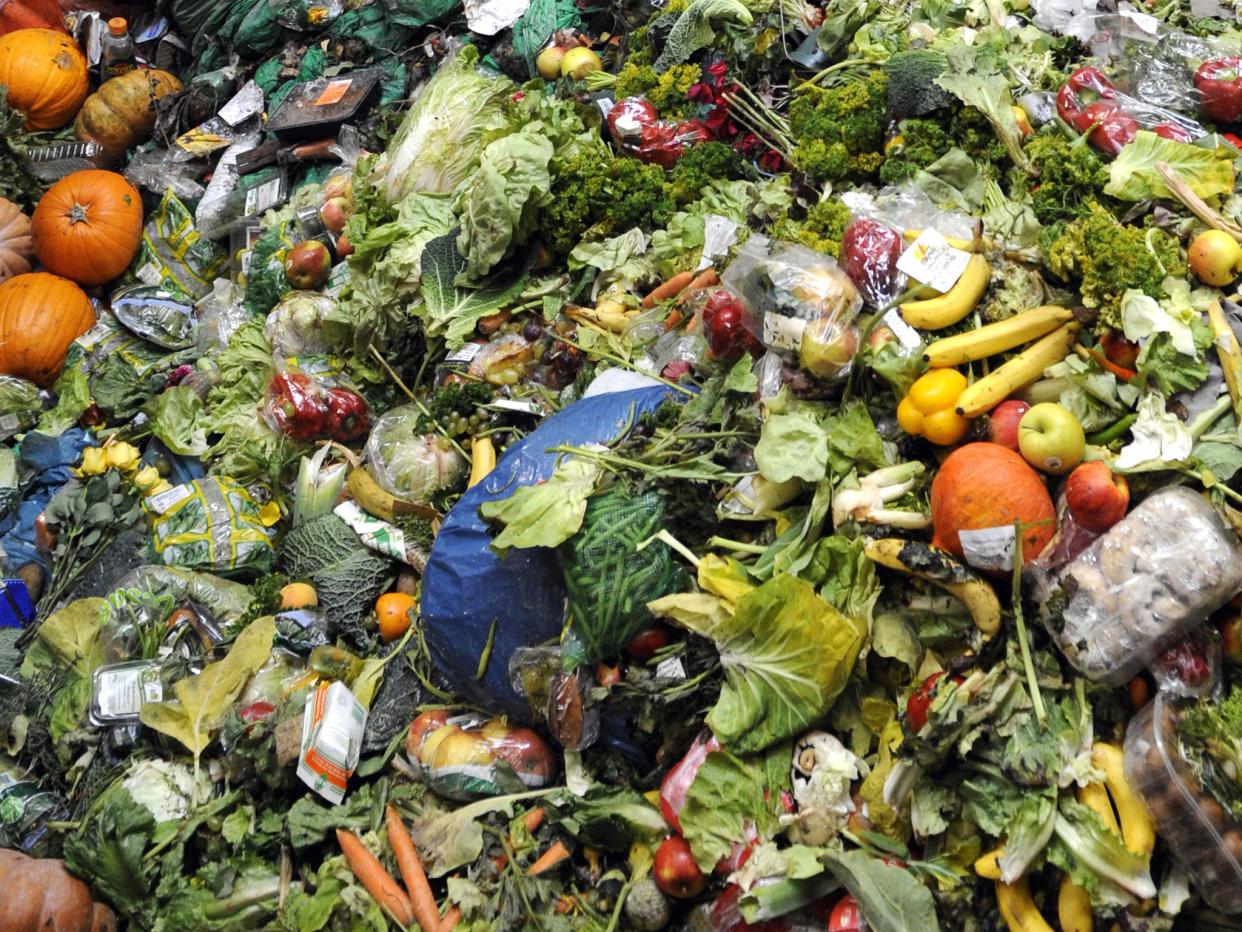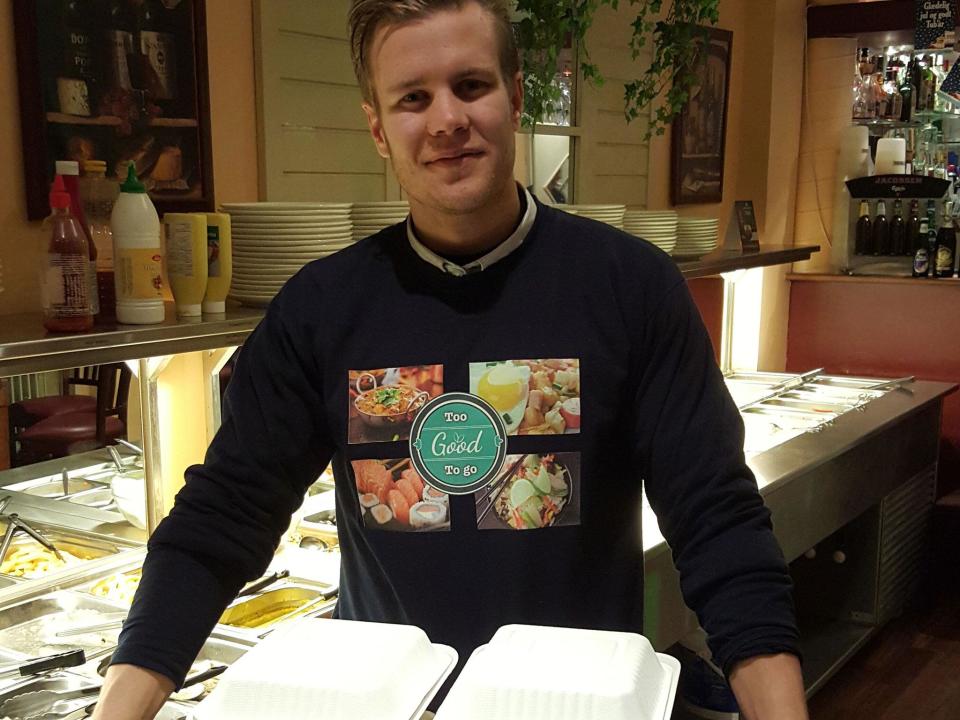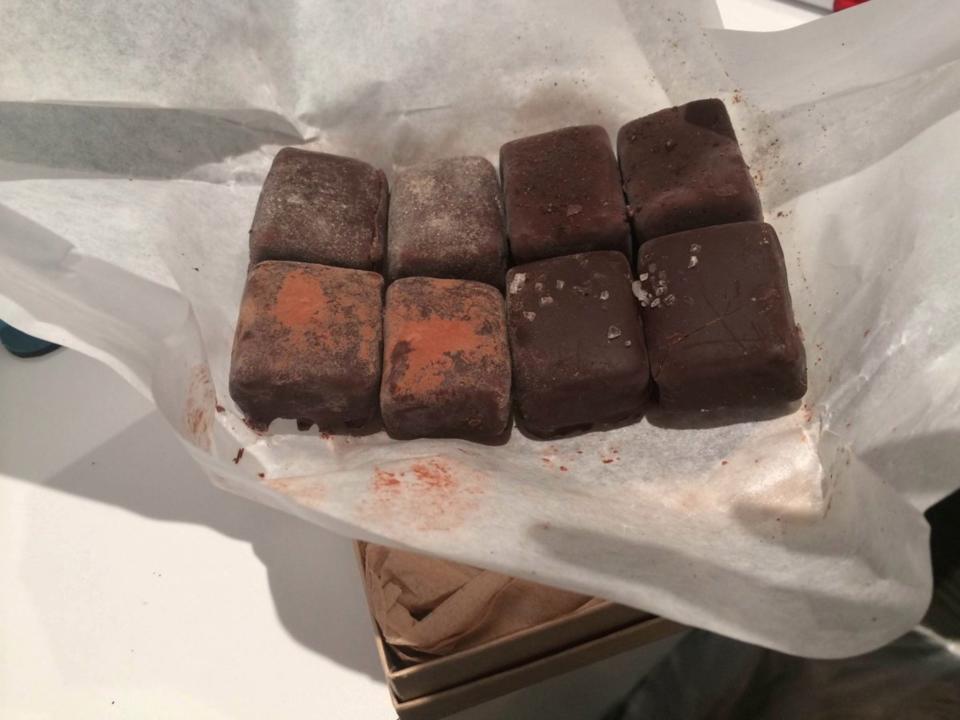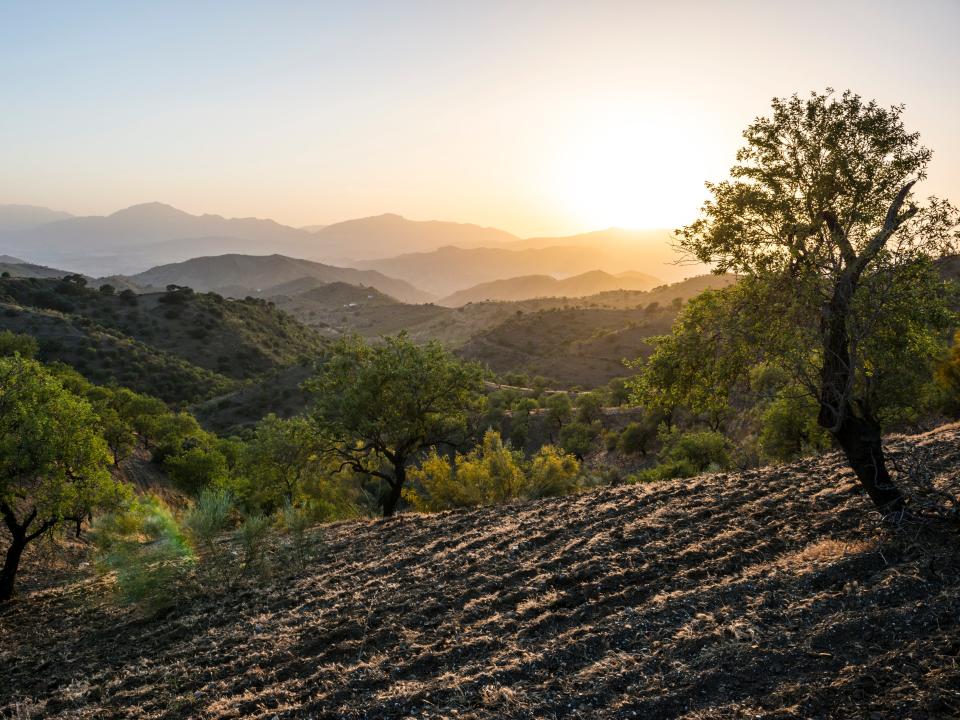20 pledges for 2020: Could these tech solutions help ease the climate crisis?

Can we tech ourselves out of the climate crisis? Can things like apps, AI and smart design steer us away from climate change disaster and into a brave, new sustainable world? It’s a tempting idea, because if tech is the answer then maybe we’re off the hook for making lifestyle changes. But let’s be honest, we know that technological innovation can’t do it all.
So if it’s not a get-out-of-jail-free card, can new technologies make a difference?
Absolutely, and here are five food sector companies that are doing just that.
Throwing food away is wasteful – we know that – but what many people don’t know is that it’s also a major contributor to greenhouse gas emissions. ‘Food waste accounts for 8-10% of global greenhouse gas emissions and if it were a country, food waste would be the third largest emitter of greenhouse gases, surpassed only by the United States and China,’ says Jamie Crummie, co-founder of the food app Too Good To Go. They conducted research last year that showed that two-thirds of people in Britain weren’t aware of the connection between food waste and climate change.
Too Good To Go is an app that aims to reduce food waste and the resulting green house gas emissions. Users check the app to find local food retailers and restaurants who sell a ‘Magic Bag’ – a mystery selection of perfectly good food. It’s up to the retailer to decide what’s in their Magic Bag which makes sense, because not only is food waste a reality but it’s also unpredictable. A bakery might have surplus croissants one day and muffins the next. The only rule is that every Magic Bag must contain at least three times the value of what users pay, so if your magic bag is priced at £3, it contains at least £9 worth of food. Â

Crummie says the Magic Bag offers retailers flexibility and users a pleasant surprise when they open it up. It also shifts the conversation away from food waste to food use, which he says is critical. ‘The term “food waste†tends to have negative connotations and we’re hoping to bust these preconceptions and show that food waste, most of the time, is just food that hasn’t been eaten for one reason or another,’ he says.
Currently, Too Good To Go, have partnered with over 4,000 food businesses and have 2.9 million registered users in the UK. Globally that number jumps to 48,000 partners and over 22 million app installs. That creates a huge potential to reduce food waste. Crummie puts it like this: ‘The UK alone throws away £13 billion of food each year – just think of the good that could be done if this money were put towards solving food insecurity.’
Is it possible to produce chocolate sustainably? Yes, is the short answer but Philipp Kauffmann, founder of Original Beans chocolate feels it’s not the right question. ‘Well, almost anybody nowadays claims to produce chocolate “sustainably†and what they mean is “fractionally less badâ€,’ he says. He ticks off a long list of problems in the chocolate industry including poverty amongst cocoa farmers, labour exploitation, deforestation, lack of product traceability and, he finishes, ‘…a final product that consists up to 80% white sugar and cheap fats wrapped in one-way plastics. How can anyone in 2020 call chocolate produced in this way “sustainableâ€?’

How indeed. But Kauffmann who calls himself ‘chief grower’ as well as company founder has been committed to redressing the wrongs of the chocolate industry since he founded Original Beans twelve years ago. Each bar of Original Beans chocolate has a unique QR code for product traceability so you can find out exactly where your bar came from, all the way down to the farmer and tree. And as part of their One Bar: One Tree programme, they plant a tree in the area from which your bar came.
In 2012, Original Beans launched the first compostable packaging for chocolate bars, made from wood pulp which can be composted in the garden. Kauffmann has just expanded this to their couverture range of chocolates for professional kitchens – another first. ‘The new material we developed is one-third more expensive, but we have decided to absorb those costs,’ he adds. Now all Original Beans packaging is made from sustainable paper sources. And, since 2015, Original Beans is ‘climate-positive’, that is carbon dioxide negative – an impressive accomplishment.
But Kauffmann isn’t stopping there. He’s now working with tech innovators looking into drone-tree seeding, 3D chocolate printing and block chain technology. ‘When you and I put our money where our mouth is, of course, we should feel rewarded and empowered, because in fact we may be doing the most good we ever can in our role: making conscious consumption choices for the good of ourselves and the world at large,’ he says. Is chocolate sustainable? It can be, and the results are delicious.
Solveiga Pakstaite loves the idea of inclusive design. “It’s when you make something easy enough for somebody with a specific disability to use, it makes it even easier for people without that disability to use it,’ Pakstaite explains. The result is better, smarter design that works whether you have a disability or not. An example? Start with expiry dates on food packaging. If you’re visually impaired printed expiry dates on packaging don’t work. And even if you’re not, then they’re still not very helpful. That’s because expiry dates are calculated based on worst-case scenarios, so we can end up throwing away perfectly safe food.
Pakstaite was in her final year studying industrial design at Brunel University when she decided to come up with a solution and, ‘…quickly realised that we’re all “blind†to when our food really goes off, not just people who can’t see and that’s why we waste so much.’
Like the best tech ideas, Pakstaite’s solution is simple for consumers to understand and use. Take a carton of milk. On the carton is a small label. One half stays flat as a control, while the other half turns bumpy to tell you when your 2% has gone off. The label is temperature-sensitive for food freshness, rather than a traditional worst-case scenario expiry label. Pakstaite worked with a chemist, came up with the initial versions of Mimica Touch, and filed for a patent – all before graduation.
Pakstaite – who won the James Dyson award for her work on Mimica -- says we’ll see Mimica Touch initially on products such as juice, milk and meat – three of the foods binned prematurely the most often. But she’s not stopping there. ‘…we won’t stop until Mimica Touch is available on foods on every shelf of the supermarket because unnecessary waste must be stopped!’
For Abby Rose, the problem was personal. Her family has a farm in the Loncomilla Valley in Chile where they grow grapes for wine and around 8,000 olive trees for olive oil. Inexplicably, several hundred of the olive trees were dying back after the frost each year. Rose, who has a tech background came up with a solution. They purchased off-the-shelf RFID – short for radio frequency identification – tags that use smart barcodes and placed one on each tree. Rose created an app – simple enough for anyone to use – that then monitored each tree, so they could identify where and what the problem was.

Vidacyle – the company Rose subsequently co-founded – takes what she learned and makes it available to other independent farmers through apps including Soilmentor. Soilmentor allows farmers and gardeners to establish a baseline on soil health, identify problem areas, and monitor progress. There are over twenty different tests growers can conduct such as VESS – visual evaluation of soil structure, infiltration rate – how quickly water infiltrates the soil and a dung beetle count (dung beetles are a good sign). The grower selects the test, conducts it, and then can review results and share them to figure out what’s working and importantly, what’s not.
Eliza Jenkins at Vidacycle says they recommend taking samples from at least three locations in a field, as soil health can vary tremendously. ‘It gives you an instant sense of how that field’s doing. You can walk a couple of metres and see a real change,’ she says. Using the app, reminds farmers that what’s happening on the ground and underneath are both critical to the health of their fields and crops.
‘I think when people get really into it it can feel quite revolutionary. It’s obviously such a simple thing but a lot of people have said to us that it changes the way they look at their farm.’
Regenerative farming is the latest buzzword in sustainable agriculture. One of the cornerstones is soil health and vitality – maintaining it if you’ve got it and restoring it if you’ve lost it. Soilmentor provides simple tools to make that happen.

